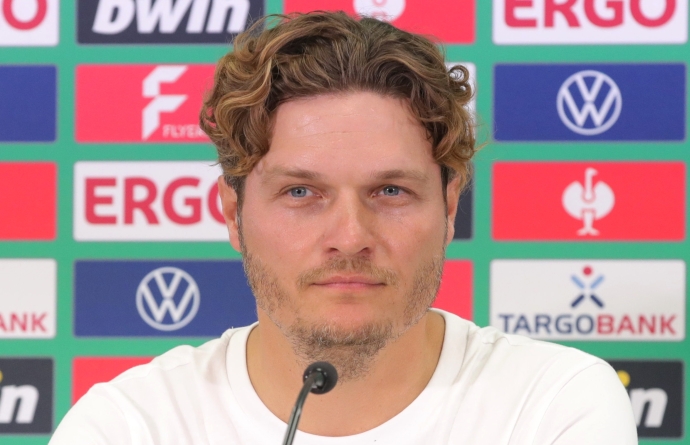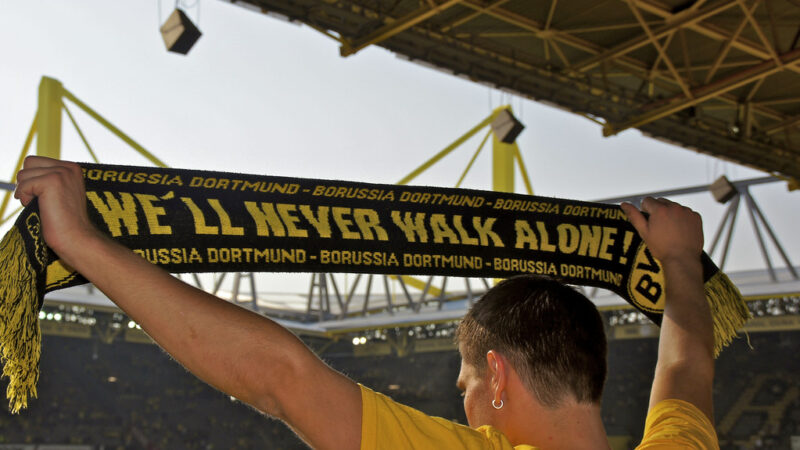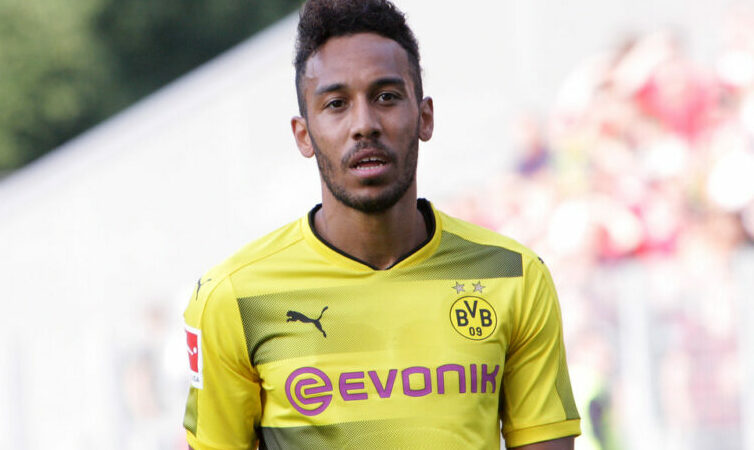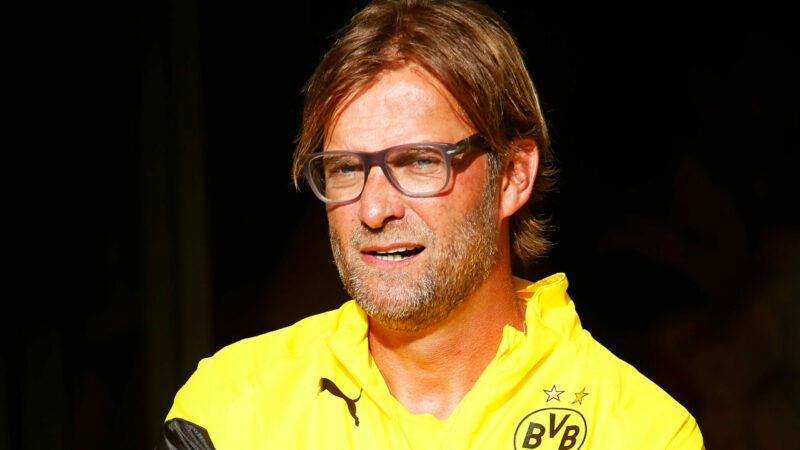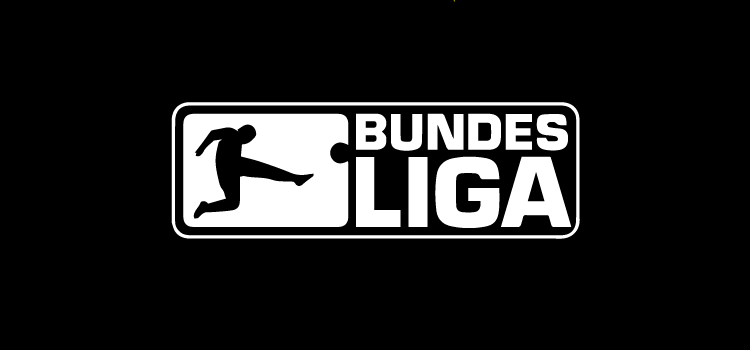BVB on… the Key Player for the Second Half
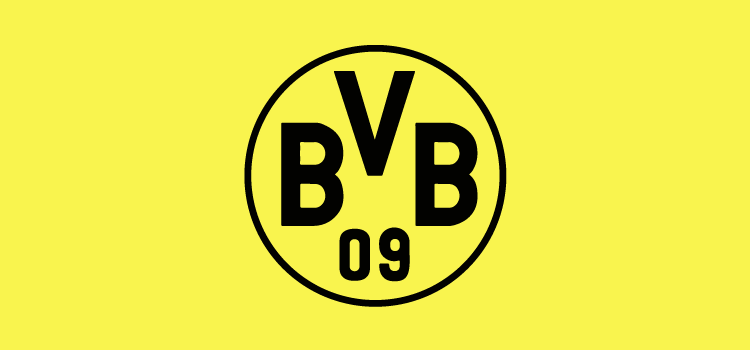
With the unofficial second-half of the Bundesliga season approaching, Dortmund will need to rediscover the form that carried them to the top of the league in September. The club took the needed step of replacing its new manager who, after a strong start, seemed lost when what worked before suddenly no longer did. Now with Peter Stoeger in charge, the spotlight is on the players to perform. The new system is decidedly more conventional and conservative, which will allow fans and the media to see if the players can focus on and perform the fundamentals necessary for a Champions League club.
That is the focus of this next collaborative piece. With the shift away from the beautiful attacking at all times focuses to a more standard defensive mindset, the key is for certain players to “step up and perform” if the Black and Yellow are to remain in the top three, which is management’s stated goal. The first half saw some players (Christian Pulisic, Pierre-Emerick Aubameyang at times, Julian Wiegl, Max Philipp, Andriy Yarmolenko) perform consistently and at a high level. Who will be those players the club needs to step-up in the second half?
Some of our expanding team of writers tackles this exact topic this week. Each of us will pick a player we believe is critical to the club’s success in 2018, or to put it another way, which player needs to play to their potential for BVB to return to the Champions League next season. Agree or disagree? Let us hear about it on social media.
Roman Burki (Robert Hay)
The Swiss keeper has been ok, and that has been the issue. At times, Burki has made magnificent saves to keep his club in a match. At other times, however, his distribution has been so abysmal that the other side has literally walked a turnover into goal. His inconsistency is maddening, to be polite, and had fans clamouring for club legend (and other Roman) Weidenfeller.
Here’s the problem – Weidenfeller was the starting keeper in the infamous 4-4 Schalke draw. While he was not completely at fault for the defensive breakdown, he certainly played a part and looked his age.
Unless Dortmund make a move for a keeper in the January transfer window – and such a move is rarely if ever made – Burki is the starting keeper for the remainder of the season. He will not only need to make saves when called upon but be a reliable presence in the back of the Dortmund defence. He will need to communicate better with his defenders, especially when younger players are in the squad, and work on his distribution such that when the balls come out of his hands he is beginning possession, not simply gambling on the break. From a Dortmund management perspective, he is the club’s best option between the posts this season and needs to remain healthy for the team to reach its goals. He will not be the “sexy” pick for most important player in the second-half, but his success is critical.
Julian Weigl (Moses Kalinda)
Julian Weigl’s form going into the second-half of the season, will need to remain consistent if Dortmund are to achieve their targets. There’s no doubt that he will be Stoeger’s first choice midfielder and if he delivers, it will only enhance the performances of the players around him. In Weigl, Dortmund have an intelligent player who is excellent at conducting play in central midfield. Unfortunately, Peter Bosz failed to get the best out of him. At times, he appeared in more advanced areas where he was unable to influence play like he did under Thomas Tuchel.
Don’t get me wrong, Weigl’s performances have been average at worst. However, the team looked unsure of how to play when Bosz’s tactics failed to produce results. Weigl’s game was further stifled when the team’s formation changed to a flat 3-4-3, at the end of Bosz’s reign. When Peter Stoeger stepped in, he immediately implemented a 4-3-3 formation, in which all players have clearly defined roles. The young German has been reverted to the defensive midfield role where he can utilize his main qualities such as his awareness, vision, and composure. The true challenge going forward will be how well he can link up with the advanced midfielders and attackers, something which they’ve been unable to do for the most part of the season. The partnership between him and Kagawa (and/or Gotze when he returns), will be crucial in order to create chances for Dortmund’s forwards. His range of passing is excellent and so is his technique. Although the same can be said about many young German midfielders, Weigl just exudes so much class compared to his peers. A truly underrated aspect of Weigl’s game is his accuracy when playing forward passes. He has developed an ability to play vertical passes even under pressure, and this is what makes him such a key player.
At the moment, Dortmund are gunning for Champions League qualification and will be looking to make their Europa League campaign a significant one. Although the team might not be as motivated as they were back in September, Weigl has an outside chance of making Germany’s final squad for the World Cup. If he can display the levels of consistency he did under Tuchel, Joachim Loew might give Dortmund’s playmaker a seat on the plane to Russia.
Marco Reus (Nate Smith)
On first thought, it might seem a bit silly to pick Marco Reus as the most important player for Dortmund in the second half of the season. After all, he is quickly approaching 30 having spent a distressing amount of his prime years sidelined through injury. His latest, a cruciate ligament tear in his knee, is a notoriously arduous injury to return from, and for a player who relies on pace to beat defenders, it could be a costly one. It’s not even guaranteed that the forward will be a factor immediately after returning, and even in the most ideal circumstances, it will be a while still before he is at full fitness.
Forget all that, and forget (for the moment, and with all due respect) Christian Pulisic. The most talented attacker at the club is still Marco Reus. Last season, another campaign bookended by injuries for the German goalscorer, he managed an incredible 11 goals and 5 assists in only 1481 minutes of Bundesliga and Champions League action. Had he managed a full season, this would have compared with the very best in the league like Robert Lewandowski and his teammate Pierre-Emerick Aubameyang.
His Gabonese teammate may score more goals, but he does not contribute to the attack the same way that Reus does. Aubameyang is the quintessential poacher, able to finish in any manner from the smallest of opportunities, but Reus is the kind of player that compliments him perfectly. Reus can contribute in the buildup, playing combinations with his teammates to spring quick breaks out of the defensive end. He has the pace and the delivery to play on the right as a classic, chalk-on-the-boots winger, but his best position is on the left, where he is able to cut in and play low, hard passes across the goal mouth to his fellow fleet-footed attackers or finish with his devastating right foot from about as far out as he would care to try. He is truly an instinctual attacker, who scores and assists goals both beautiful and workmanlike in nature.
While it would have been a treat watching Reus in Peter Bosz’ frenetic attacking system, his impact will perhaps be even more tangible in Peter Stoeger’s system. With an increased focus on defensive organisation and discipline, Stoeger’s Dortmund will likely rely on the counter attack for a larger portion of their goal scoring opportunities. If so, Reus will be the man to lead the charge. Reus partnered with fellow club veterans Shinji Kagawa and Nuri Sahin on one the most exciting counter-attacking teams in recent history under Juergen Klopp, and with the agility and vision of Pulisic and stage 4 afterburner pace of Aubameyang, this year’s iteration could certainly perform similar feats.
Of course, all of this could all come to nought. Reus will probably be back sometime early this year, but it will be a while before we have a sense of how much he could offer. If Mario Gotze comes back healthy and manages to maintain fitness as well, the on-pitch synergy between the fellow countrymen could only lift Dortmund even further. Injuries have robbed fans of one of the most exciting and gifted players to ever don the yellow and black for too much of his career, but there is too much talent to ignore. That he is one of the true ambassadors for the club, having stuck with them through his best years when he could have made twice as much elsewhere, is just the icing on the cake. Currently in third place, Dortmund aren’t that far away from where they should be, despite the rampant inconsistencies in the first half of the season. If Reus comes back, plays the way the world knows he is capable and contributes to an improvement in the second half, the excitement will be well and truly back again at the Westfalenstadion.

